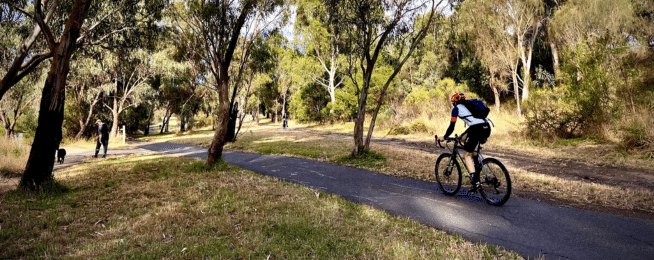We know riding a bike is good for our general wellbeing, but new research suggests even a small spin can have big benefits for the brain.
The study, published in The Journal of Physiology, examined diet and exercise factors and compared their effects on a specialised brain protein called brain-derived neurotrophic factor (BDNF).
This protein is known to play an important role in preserving neurons and promotes learning and memory by helping the brain form new connections and pathways.
BDNF has become a focal point for anti-ageing researchers, with studies demonstrating its potential to slow the progression of age-related diseases such as Alzheimer’s and Parkinson’s.
Studies have also shown that exercise can increase levels of BDNF in the brain, and the new research takes things a step further by looking at which type of exercise might have the most impact.
Scientists at New Zealand’s University of Otago enlisted 12 physically active participants and tested how different lifestyle interventions can influence levels of BDNF.
One involved fasting for 20 hours, while another combined fasting with light exercise. Another tasked subjects with 90 minutes of light cycling, while the other involved a six-minute bout of vigorous cycling.
Fasting induced no change in BDNF concentration, while the longer, lighter cycling session led to a slight increase. Whether these longer sessions were combined with fasting or not, they were still no match for the six minutes of vigorous cycling, which boosted BDNF levels by 4 to 5 times compared to the other interventions.
The sample size is small and there is still much to learn about the connection between BDNF and brain health, the researchers say. But the study suggests that short and intense bouts of bike riding could have a profound effect, and offers solace next time you’re struggling up that hill or powering home with your groceries.
Become our friend
Find out more about Bicycle Network and support us in making it easier for people to ride bikes.


